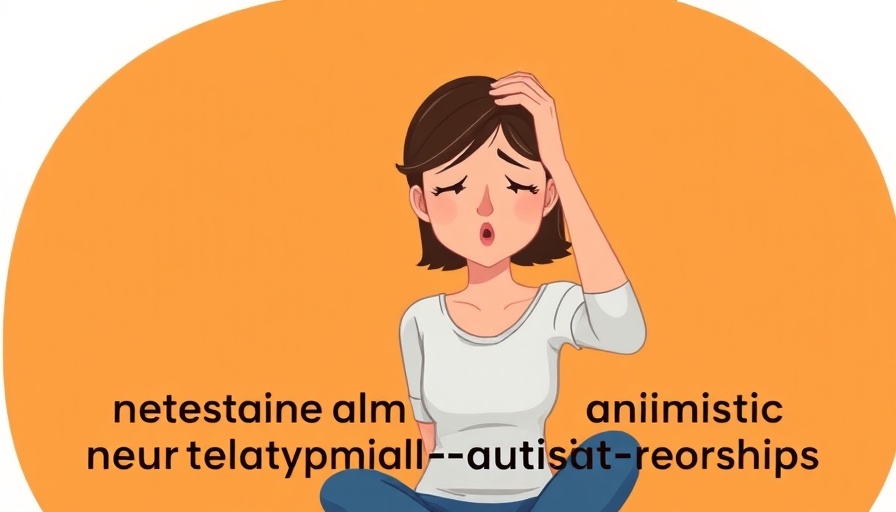
Understanding Cassandra Syndrome: The Hidden Emotional Struggle
Cassandra Syndrome is a little-known yet profoundly distressing experience that many neurotypical partners of individuals with neurodivergent conditions, such as autism, can face. This syndrome refers to the feeling of emotional neglect and isolation, often being amplified by the communication differences that can exist in these relationships. While neurodivergent individuals may understand their experience and their emotions well, their partners may feel unseen and unheard. Over time, this feeling can lead to significant emotional fallout, including frustration, isolation, and a deep sense of longing for connection.
The Signs of Cassandra Syndrome
Recognizing the signs of Cassandra Syndrome is crucial for both partners. Common signs may include:
- Feelings of loneliness and emotional voids in the relationship.
- Increased anxiety or stress stemming from the feeling of not being understood.
- Frequent arguments or misunderstandings that seem to arise from differing communication styles.
By identifying these signs, the neurotypical partner can begin to address their feelings and seek the necessary support for themselves. It's essential to validate these emotions, as they deserve attention and care.
Building Bridges: Effective Communication Strategies
Effective communication serves as the backbone of a healthy relationship, particularly when navigating neurodivergence. Consider these strategies to foster understanding and connection:
- Use Clear Language: Avoid idioms or expressions that might be misinterpreted. Instead, aim for straightforward communication that leaves little room for confusion.
- Active Listening: Both partners should practice active listening. This means truly hearing what the other is saying instead of planning your response while they’re speaking.
- Seek Feedback: Regularly check in with each other to ensure that both partners feel heard and understood. This can involve asking if a certain way of communicating works for them or if there are alternatives they’d prefer.
Implementing these strategies can help ease the emotional tension and create a more harmonious living environment.
Finding Support: Where to Turn
Recognizing that you’re experiencing Cassandra Syndrome can be daunting, but you’re not alone. Here are some helpful resources:
- Therapy or Counseling: Professional support can offer strategies tailored to your situation, helping you navigate your relationship dynamics more effectively.
- Support Groups: Look for local or online groups where you can share experiences with others who understand your feelings and challenges.
- Educational Resources: Books and articles tailored to both neurodivergent and neurotypical experiences can provide key insights that may shift your perspective.
Engaging with these resources can foster healing and help build a stronger connection in the long run.
Future Considerations: Growth Potential in Relationships
While navigating Cassandra Syndrome is undoubtedly challenging, it also opens up the potential for profound personal growth and enhanced relationship dynamics. By learning new communication strategies and developing emotional resilience, both partners can cultivate deeper intimacy and understanding. As the neurotypical partner processes their experiences, they can share insights with each other, leading to a richer partnership based on empathy and mutual respect.
Embracing Change: Acknowledging Your Feelings
Above all, it’s essential to acknowledge your feelings. The emotional challenges that come with Cassandra Syndrome highlight the importance of self-care and self-awareness. Making an effort to validate your emotions can empower you to express your needs more confidently and ensure a healthier dialogue with your partner.
As you navigate this landscape, remember that it’s okay to seek help. Utilizing the right tools and strategies can lead you toward a more fulfilling emotional connection, which is ultimately the goal for all relationships.
By prioritizing communication and actively seeking understanding, you can transform the challenges of Cassandra Syndrome into opportunities for growth. Seek support, embrace the journey, and take proactive steps toward strengthening your relationship.
 Add Row
Add Row  Add
Add 




 Add Row
Add Row  Add
Add 

Write A Comment